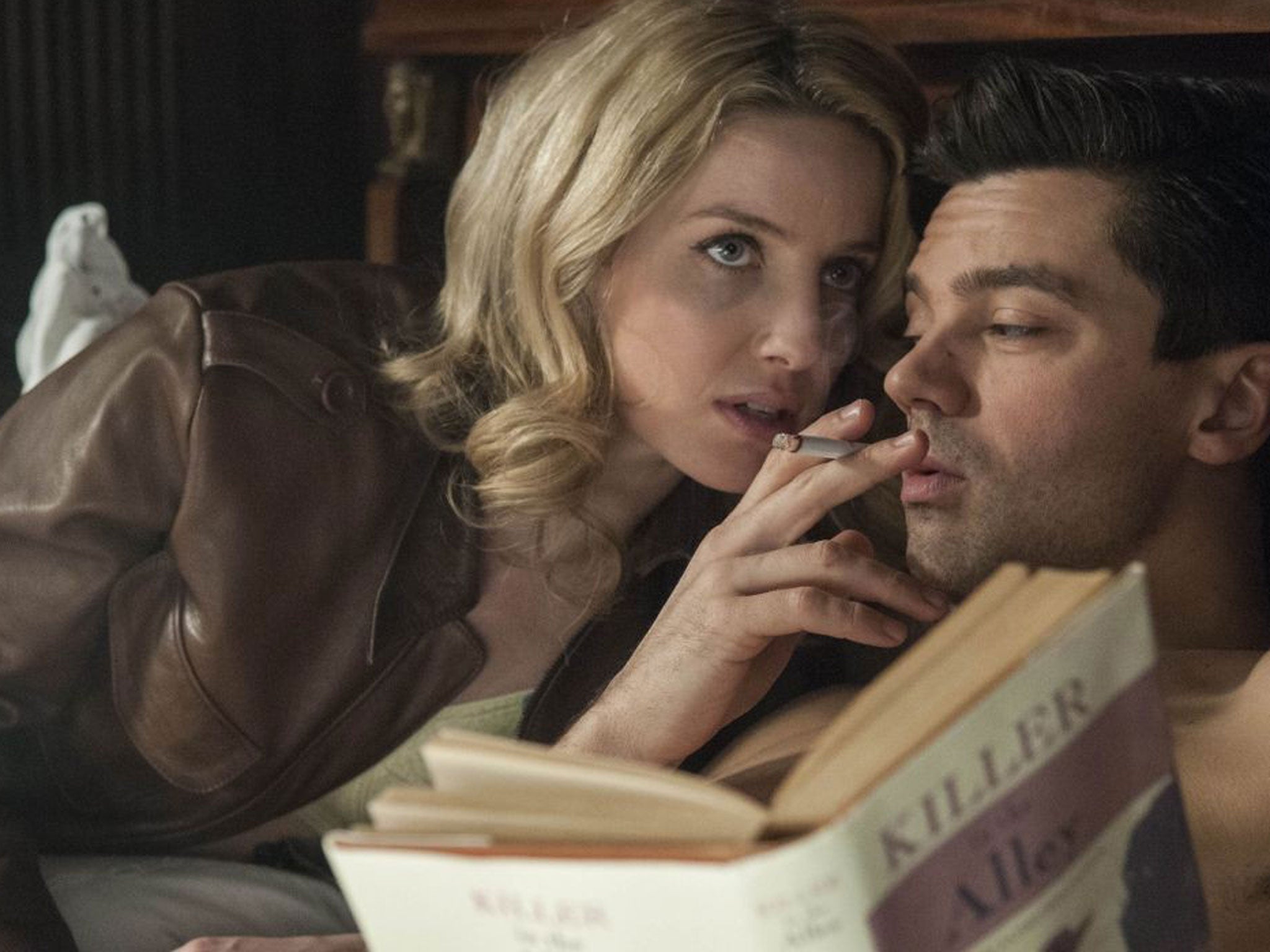This fibbing Fleming drama left me shaken, not stirred
We have always felt a little superior about dramas playing fast and loose with history


Those who watched Fleming on Sky Atlantic this week, a dramatisation of the life of James Bond creator Ian Fleming, might have been surprised to see the title character engaging in hand-to-hand fighting with Nazis, certainly not something Ian Fleming ever did in real life.
Fortunately, readers of this paper had an explanation of this, when the drama’s director Mat Whitecross told us last Tuesday: “Everything’s based on something real but we have sexed it up at times. Fleming spent a lot of time desk-bound, which doesn’t make great drama. But in fact he did get out in the field, he did get to Germany, he did go out to France and so on, but, yeah, he didn’t actually have any fisticuffs with any Nazis. But it felt like it would be cool if he did.”
It’s a priceless insight into the philosophy of a TV dramatisation of a real-life historical figure. Yeah, this didn’t happen, but it felt like it would be cool. Cool indeed. And in the quest for cool, why not go further? Surely Ian Fleming could have beaten Hitler black and blue while he was in Germany. Yeah they didn’t actually have any fisticuffs, but hey...
We have always felt a little superior about screen dramas playing fast and loose with history. It was something the Americans did, we sniffed – Spielberg downgrading the British contribution to D-Day, for example. But Fleming is a British drama, produced by BBC America, and Mr Whitecross a British director. Does taking a little dramatic licence matter? I think it does. In an age when many of our TV dramas are biopics and people learn about historical figures from the screen as much as from books, yes it matters that these real lives are treated with some regard for historical accuracy.
Dramatists and directors can’t have it both ways. If you want a drama about a spy novelist with a complicated love life who rushes in headlong to knock Nazis about, then use your skills to create one.
If you want to cash in and get easy publicity by using a well-known real-life figure responsible for an even better known fictional spy, then at least be faithful to the facts. To do otherwise is actually desperately uncool.
Once more unto the breach, please, Mr Grandage!
Tonight, when Jude Law hangs up his sword with the last performance as Henry V at the Noël Coward Theatre, it will also bring the curtain down on the Michael Grandage season in London’s West End. The brilliant director has brought a breath of fresh air to the capital’s commercial theatre. Twenty-five per cent of tickets sold were for just £10, and more than 30 per cent of all tickets sold for the entire season were to first-time theatre bookers. This was a great achievement in attracting a new audience. Accompanying the season were free performances for schools from disadvantaged areas; fully paid training posts for young directors, designers and lighting designers; and various other schemes for young people, including a youth theatre. Next year Grandage will be making a movie, and not running a second season. Someone should persuade him to change his mind. One year of attracting new, young audiences to quality theatre is not remotely enough.
How to make a drama out of a ballet crisis
The most feared sight in any theatre, opera or dance venue is the man in a dinner jacket who comes on stage at the start. You know he is going to say that your favourite star is indisposed. But when I attended Covent Garden last Saturday for a new Wayne McGregor ballet with dance superstar Natalia Osipova, fear turned to terror when, worse than the man in a dinner jacket, the head of the Royal Ballet came on. Kevin O’Hare first announced that one of the stars, Thiago Soares, had injured himself at the matinee and could not perform. Mild groans around the auditorium. Mr O’Hare then added that Natalia Osipova had also injured herself at the matinee and could not perform either. Major groans around the auditorium. Then, with a veritable coup de théâtre, he added that consequently the ballet was cancelled. Groans as far as the ear could hear. Mr O’Hare should be on stage more regularly. He has a keen sense of how to create suspense and follow it with a memorable denouement.
Join our commenting forum
Join thought-provoking conversations, follow other Independent readers and see their replies
Comments
Bookmark popover
Removed from bookmarks